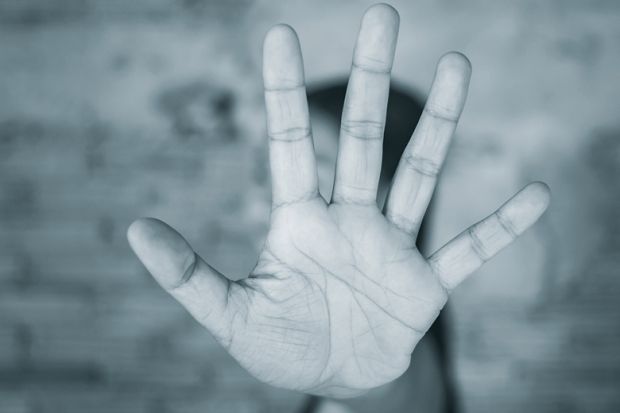Academic conferences fall short of their potential for boosting equality in the sciences by routinely failing to incorporate basic protections for women and other under-represented participants, an analysis has found.
The survey, conducted by a team of graduate students, examined 195 conferences in biology fields held in the US and Canada, and found that less than a quarter had specific policies for attendee behaviour.
Even the small minority of conferences with such codes mostly failed to address sexual misconduct, provide reporting systems or set out consequences for violations, the team wrote in an article published on 8 July in the PNAS journal.
The authors say their findings help put hard numbers to a longstanding problem whose dimensions and effects are still not fully understood and appreciated.
“When used intentionally and responsibly, codes of conduct make essential contributions toward equity in science,” the authors write.
The PNAS study was conducted by Northwestern University graduate students Alicia J. Foxx, Taran M. Lichtenberger and Lea K. Richardson; University of Southern California graduate student Aireale J. Rodgers; and postdoctoral fellow Rebecca S. Barak and conservation scientist Evelyn Webb Williams of the Botanic Garden.
Of the 195 North American biology conferences they examined, most of them occurring in the past two years, only 24 per cent had codes of conduct that the authors could find by searching information posted to the conferences’ websites.
Of those conferences that did have codes of conduct, 43 per cent did not mention sexual misconduct, 26 per cent failed to include any method to report violations, and 35 per cent did not describe any consequences for misconduct, the authors say.
Their work helps demonstrate that while the problem of sexual harassment is gaining greater public attention in academia and beyond, the record of known practices and abuses specific to scientific conferences appears anecdotal, with correspondingly unfocused responses.
A comprehensive study published last year by the National Academies of Sciences affirmed that sexual harassment of women in the workplace is widespread, and that rates have not significantly decreased in the past several decades.
The study said professional conferences are one of the “powerful” elements of career advancement in the sciences, but that “an atmosphere of gender discrimination pervades” them, as it does most other academic settings.
Some professional societies have taken steps to identify and punish sexual misconduct at their conferences, but there’s not a clear agreement on approaches, the National Academies said.
In one 2017 study involving 221 participants in scientific conferences, most of them women, consultant Sherry A. Marts found that 60 per cent of them reported having experienced harassment at a meeting at some point in their careers. Another study, involving attendees at various locations of the Conferences for Undergraduate Women in Physics during 2017, found nearly three-quarters of undergraduate women in the field had experienced some form of sexual harassment.
Register to continue
Why register?
- Registration is free and only takes a moment
- Once registered, you can read 3 articles a month
- Sign up for our newsletter
Subscribe
Or subscribe for unlimited access to:
- Unlimited access to news, views, insights & reviews
- Digital editions
- Digital access to THE’s university and college rankings analysis
Already registered or a current subscriber? Login







